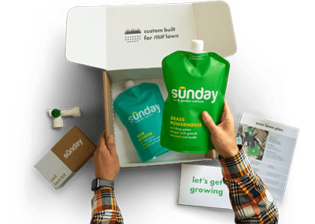Hey there, lawn enthusiasts! If you’re looking to grow a lush, green lawn in Louisiana, you’re in for a challenge. With hot and humid summers and unpredictable weather patterns, finding the right grass seed can be a daunting task. And choosing the wrong grass type will quickly lead to a very poorly looking lawn.
But fear not, I’ve got your back! After extensive research and personal experience, I can confidently say that Bermuda grass is a great option for Louisiana’s climate. However, there are other grasses that can thrive in this southern state, and I’m going to break them all down for you.
So, sit back, grab a cold drink, and let’s dive into the best grass seed for Louisiana.
Key Takeaways
- Bermuda Grass: Drought-tolerant, withstands heavy foot traffic, prefers well-drained soils with a pH of 6 to 7.2, and full sun exposure. Not cold-tolerant.
- Centipede Grass: Low-maintenance, requires less fertilizer and mowing, grows best in slightly moist, well-drained soil with a pH of 4.5 to 6.0, tolerates heat and humidity.
- Zoysia Grass: Drought-tolerant, withstands heavy foot traffic, prefers full sun or light shade, and grows best in slightly moist, well-drained soil with a pH of 4.5 to 6.0.
- Carpet Grass: Adapted to heavy rainfall and acidic soils, low-maintenance, requires less fertilizer and water, tolerates moderate foot traffic.
- Growing Challenges: Louisiana’s climate and soil conditions pose significant challenges for growing lawns. Choosing grasses adapted to the local climate and implementing proper lawn care practices can help overcome these challenges.
Looking for the best grass seed for your region?
Our smart lawn plans are designed to work perfectly with your local soil and climate conditions, without any of the toxic stuff.
Use the code EHG20 for an instant $20 discount!
- Personalized lawn care: Custom lawn plans based on soil analysis, climate data, and your specific lawn needs.
- Convenience with a conscience: Products that are not only easy to use but also safe for you, your pets, and the planet.
- Science-backed formulas: Bio-based formulas contain effective, natural ingredients like seaweed, molasses, and iron.
- Expert support: Get one-on-one guidance from a real person and rest easy with Sunday's satisfaction guarantee.
Bermuda Grass
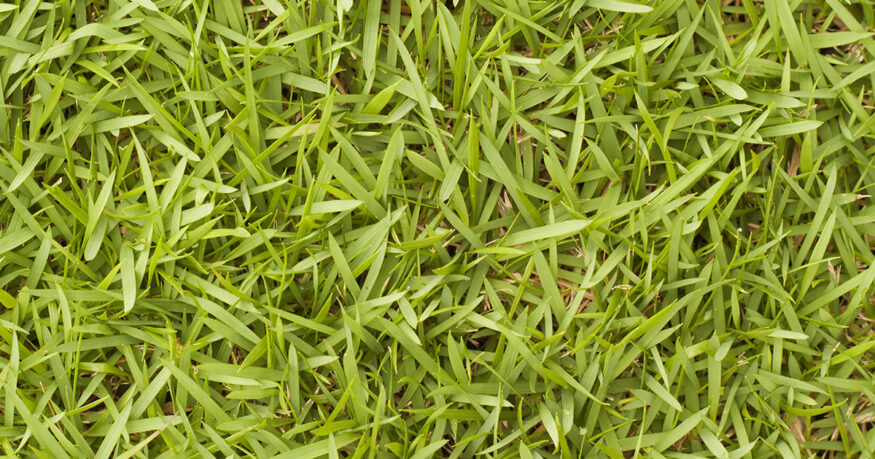
| Also Known As | Bermuda grass, wiregrass; Cynodon dactylon L. |
| Type of Grass | Warm season perennial |
| Optimal Zones | Southern region |
| Root Structure | Deep |
| Winter hardiness | Poor |
| Heat tolerance | Excellent |
| Shade tolerance | Poor |
| Water Requirements | High |
| Drought Tolerance | High |
| Self Repair Capacity | Excellent |
| Overall Maintenance Requirements | Moderate to High |
Why Bermudagrass is The Most Popular Seed Choice For Louisiana
If you’re looking for a lawn grass that can stand up to Louisiana’s hot and humid climate, Bermuda grass might be the perfect choice for you. This warm-season perennial grass is known for its ability to form a dense, attractive sod that can withstand heavy foot traffic and quickly spread to cover damaged areas.
One of the reasons Bermuda grass is so popular is its drought tolerance. Once it becomes established, it requires very little water. This is great news for those looking to conserve water and reduce their environmental impact. Additionally, Bermuda grass is highly responsive to management and can produce a high-quality lawn with large amounts of fertilizer, water, and frequent mowing.
While Bermuda grass is versatile and can grow in a range of soil types, it prefers well-drained soils with a pH of 6 to 7.2. It also prefers full sun and does not tolerate shade well. One thing to keep in mind is that Bermuda grass does not tolerate cold temperatures during the winter months. If you live in an area that gets below 20 degrees Fahrenheit during the winter, you will need to replace it with St. Augustine grass or zoysia grass.
Taking care of your Bermuda grass is relatively easy:
- Water your lawn deeply and infrequently, about once a week or when the soil feels dry to a depth of 4 inches.
- Mow your lawn regularly, keeping the height between 1 and 2 inches.
- Fertilize your lawn with a balanced fertilizer (such as 10-10-10) four times a year: in early spring, late spring, summer, and fall. Apply about 1 pound of nitrogen per 1,000 square feet of lawn each time.
- Control weeds by applying pre-emergent herbicides in early spring and post-emergent herbicides as needed throughout the growing season.
- And finally, aerate your lawn once a year in late spring or early summer to improve soil drainage and root growth.
With a little bit of care and attention, Bermuda grass can provide you with a beautiful lawn that is the envy of your neighborhood.
Related article: Read our state-by-state guide to choosing the best grass.
Centipede Grass
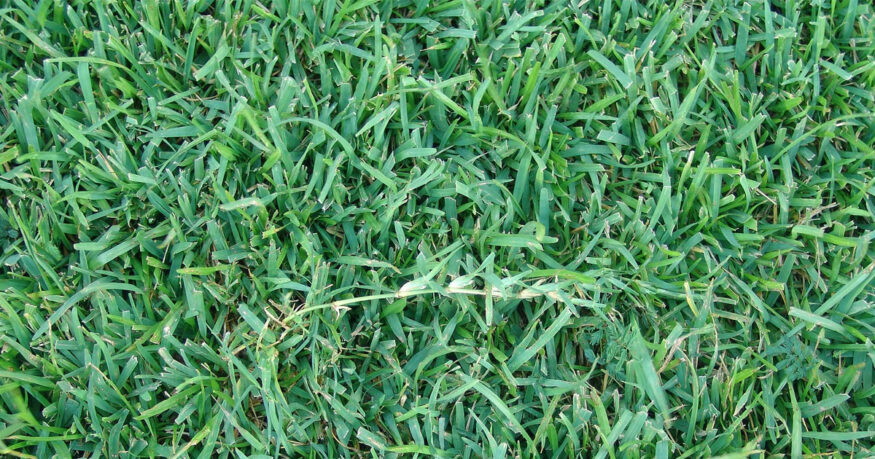
| Also Known As | Lazy man’s grass; Eremochloa ophiuroides |
| Type of Grass | Warm season perennial |
| Optimal Zones | 7 – 10, South Eastern US; Hawaii |
| Root Structure | Shallow |
| Winter hardiness | Very poor |
| Heat tolerance | Excellent |
| Shade tolerance | Fair |
| Water Requirements | Moderate to High |
| Drought Tolerance | Moderate to High |
| Self Repair Capacity | Poor |
| Overall Maintenance Requirements | Low |
What Makes Centipedegrass A Great Grass
If you’re a Louisiana homeowner looking for a low-maintenance grass that doesn’t require a lot of upkeep, then centipede grass might be the answer you’re looking for. This warm-season perennial grass is perfect for those who want a decent looking lawn without having to put in a lot of effort. It requires less fertilizer and mowing than other warm-season grasses, and it has a natural lime green color and a coarse texture.
Centipede grass grows best in slightly moist, well-drained soil with a pH of 4.5 to 6.0, making it ideal for Louisiana’s climate. It can tolerate heat and humidity quite well, but its roots need to be kept cool during the hot summer months by watering it every day during July and August. It also needs lots of sunlight to grow well, at least 6 hours per day.
This grass is perfect for homeowners who don’t have high expectations for their turf quality or want a dark green, fine-textured lawn. It’s ideal for lawns that receive low to moderate foot traffic, and it doesn’t perform well in areas with poor drainage, high pH, high salinity, heavy shade, or heavy traffic.
Centipede grass is resistant to most diseases and insects, but it can be susceptible to nematodes, large patch fungus, and iron deficiency. It can also be damaged by cold temperatures below 5°F or by drought stress. However, if you take care of it properly, it should be able to withstand most of these issues.
When it comes to planting your centipede grass, it’s a slow-growing grass that may take longer to establish than other warm-season grasses. It can be planted from seed, sod, plugs, or sprigs, but it may take several months to fill in the bare spots. To ensure that it grows well, make sure to water it regularly during the hot summer months and fertilize it once or twice a year.
Overall, centipede grass is a great choice for Louisiana homeowners who want a low-maintenance lawn that still looks decent. It’s not the best choice for everyone, but if you have low expectations and don’t want to put in a lot of effort, then it could be the perfect grass for you.
Looking for the best grass seed for your region?
Our smart lawn plans are designed to work perfectly with your local soil and climate conditions, without any of the toxic stuff.
Use the code EHG20 for an instant $20 discount!
- Personalized lawn care: Custom lawn plans based on soil analysis, climate data, and your specific lawn needs.
- Convenience with a conscience: Products that are not only easy to use but also safe for you, your pets, and the planet.
- Science-backed formulas: Bio-based formulas contain effective, natural ingredients like seaweed, molasses, and iron.
- Expert support: Get one-on-one guidance from a real person and rest easy with Sunday's satisfaction guarantee.
Zoysia Grass
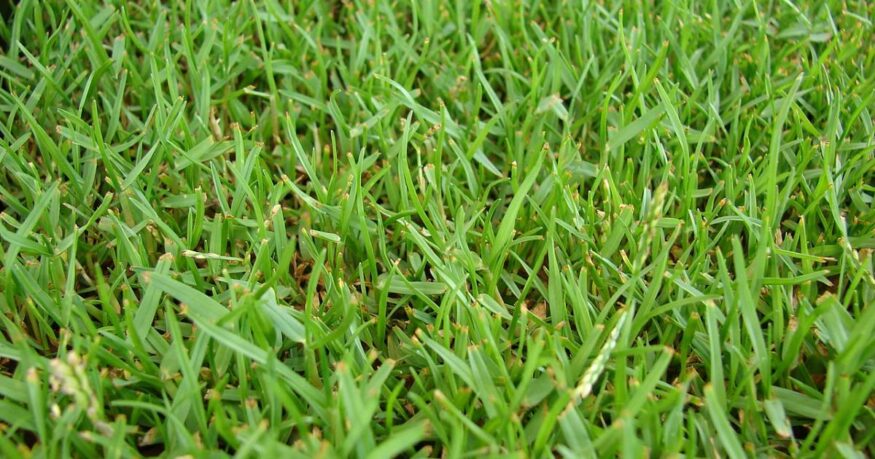
| Also Known As | Zoysiagrass; Zoysia sp. |
| Type of Grass | Warm season perennial |
| Optimal Zones | Southern through warmer transition zones |
| Root Structure | Shallow to medium |
| Winter hardiness | Good |
| Heat tolerance | Excellent |
| Shade tolerance | Partial |
| Water Requirements | Medium |
| Drought Tolerance | Good |
| Self Repair Capacity | Low |
| Overall Maintenance Requirements | Moderate |
Why Zoysia Grass Grows well in Louisiana
If you’re looking for a grass type that can handle Louisiana’s hot and humid climate, Zoysia Grass is an excellent choice. This warm-season perennial grass is drought tolerant, requires little water once established, and can withstand heavy foot traffic. Plus, its dense and attractive texture can prevent weed growth, making it a great option for any lawn in Louisiana.
Zoysia Grass can be planted with plugs, sod, or seeds, but seeds take longer to germinate and establish. It prefers full sun but can handle light shade and grows best in a slightly moist, well-drained soil with a pH of 4.5 to 6.0. It should be kept 1-3 inches tall and mowed with sharp blades, preferably a reel-type mower.
However, there are some downsides to Zoysia Grass that you should be aware of. It is slow to establish from seed or plugs and may take 2-3 years to fill in bare spots. It can become dense and compact over time, restricting air flow into the soil and nutrients to the roots of the turf. Additionally, it can develop a thick layer of thatch that prevents water and fertilizer from penetrating the soil.
To maintain the health of your Zoysia Grass, regular fertilizing, mowing, watering, and weed, disease, and pest control measures are necessary. It should also be noted that Zoysia Grass does not tolerate the cold temperatures of winter, so it will need to be replaced by St. Augustine or Bermuda grass if you live in an area that gets below 20 degrees Fahrenheit during the winter months.
Overall, Zoysia Grass is a great choice for any homeowner looking for a grass type that can handle Louisiana’s hot and humid climate. Its drought tolerance, ability to withstand heavy foot traffic, and dense texture make it a top pick for any lawn in Louisiana.
Learn More: Follow our lawn maintenance plan for a great looking lawn
Carpetgrass
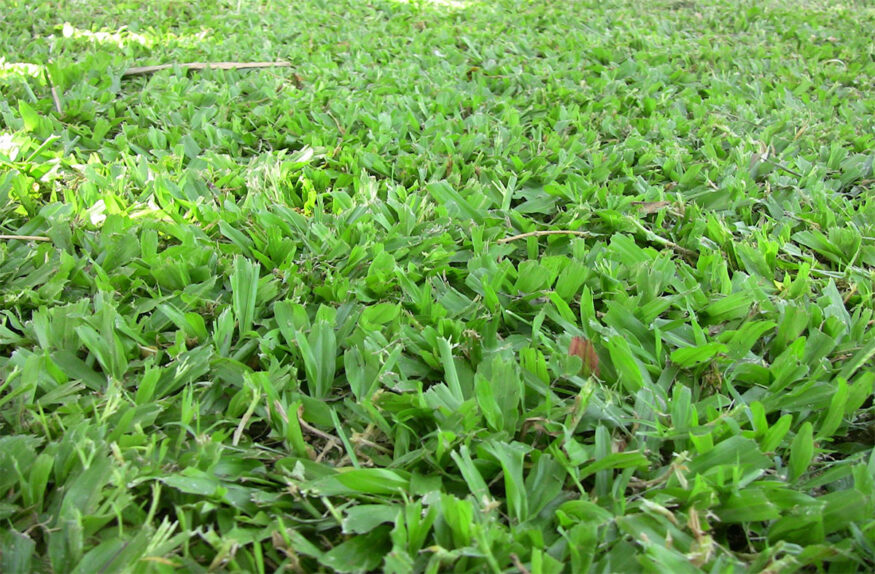
| Also Known As | Carpet grass; Axonopus affinis or Axonopus compressus |
| Type of Grass | Warm season perennial |
| Optimal Zones | Northern, transition, and southern zones |
| Root Structure | Shallow |
| Winter Hardiness | Poor |
| Heat Tolerance | Great |
| Shade Tolerance | Moderate |
| Water Requirements | Medium |
| Drought Tolerance | Low |
| Self Repair Capacity | High |
| Overall Maintenance Requirements | Low to medium depending on mowing frequency |
Why Carpet GrassIs a Popular Grass seed Choice
This warm-season perennial grass is adapted to the Gulf Coast’s heavy rainfall and acidic soils, making it an ideal option for homeowners in Louisiana.
Carpetgrass is a low-maintenance grass that requires less fertilizer and water than other grasses like bermudagrass or St. Augustinegrass. It forms a dense sod that can tolerate moderate foot traffic, making it a great option for families with children or pets. Additionally, carpetgrass has moderate shade tolerance and can compete with most weeds once established.
Although carpetgrass has a coarse texture and light-to-medium green color, it can be easily established from seed, which is small and inexpensive. However, it’s important to note that carpetgrass doesn’t tolerate cold temperatures well and may turn brown in winter. It may also be invaded by other grasses or weeds that are more aggressive or adapted to the soil conditions.
To care for your carpetgrass:
- Mow it at a height of 1 to 2 inches during the growing season
- Fertilize it with up to 1 pound of nitrogen per 1,000 square feet per year
- You should also water it as needed to prevent drought stress during dry periods, but avoid overwatering or watering at night to prevent disease problems.
- Dethatch and aerate carpetgrass only if necessary to improve soil drainage and air circulation.
Overall, carpetgrass is a great grass type to consider if you’re looking for a low-maintenance option that can withstand Louisiana’s warm and wet climate. Its ability to tolerate moderate foot traffic and compete with most weeds makes it a great choice for families, and its low fertilizer and water requirements make it a cost-effective option.
Louisiana’s Climate And Growing Challenges For Lawns
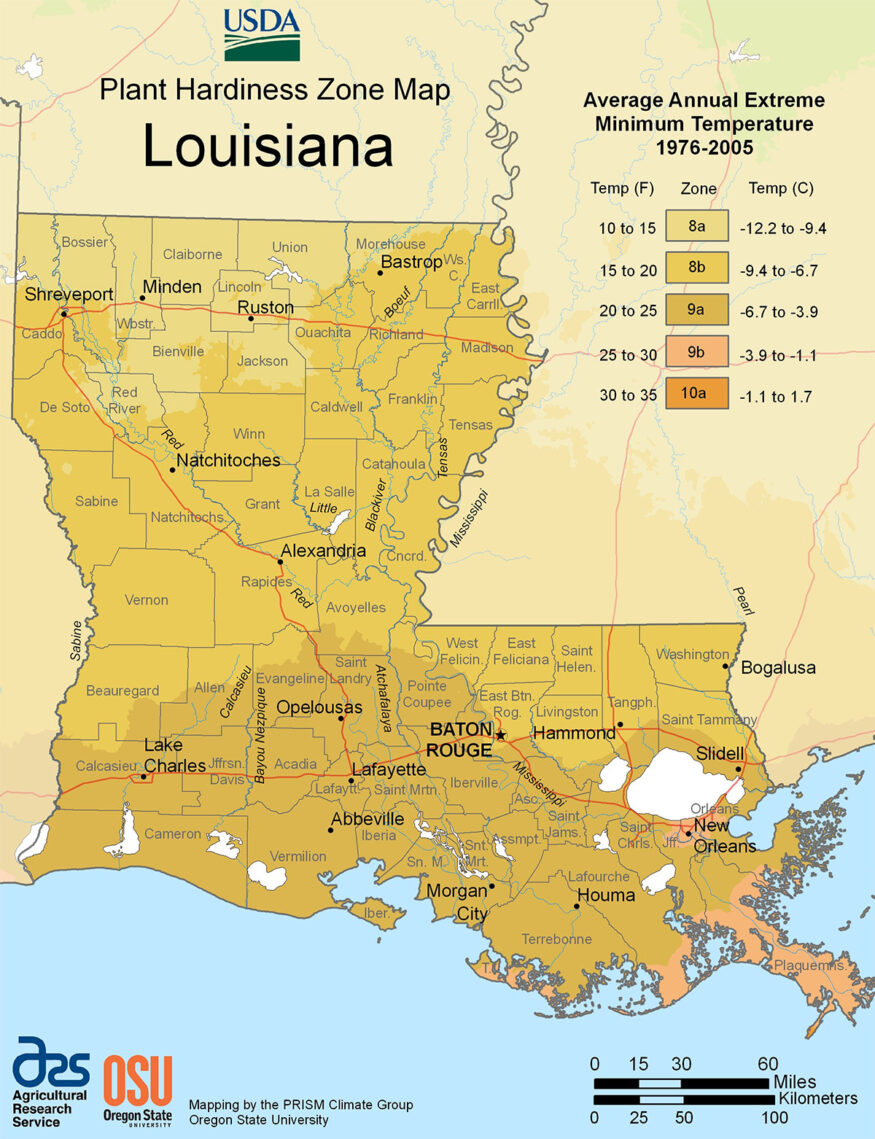
Louisiana’s climate is characterized by hot and humid summers and mild winters. The state receives an annual rainfall of 50 inches or more, with higher amounts in the south and lower amounts in the north. However, Louisiana is also prone to extreme weather events such as hurricanes, tornadoes, floods, droughts, and freezes that can damage lawns.
Soil Conditions
Soil conditions in Louisiana vary from sandy to clayey, acidic to alkaline, and well-drained to poorly drained. Most soils in Louisiana are low in organic matter and phosphorus, which are essential for lawn grasses to thrive. Therefore, regular additions of compost, manure, or other organic amendments are necessary to improve soil structure and fertility. In addition, supplemental fertilization with phosphorus-containing fertilizers is required to promote root growth and flowering.
Another challenge for growing lawns in Louisiana is soil fertility. Most soils in Louisiana are low in organic matter and phosphorus, which are essential for lawn grasses to thrive. Therefore, regular additions of compost, manure, or other organic amendments and supplemental fertilization with phosphorus-containing fertilizers are necessary to improve soil structure and fertility.
Weather
One of the biggest challenges for growing lawns in Louisiana is the weather. Extreme weather events such as hurricanes, tornadoes, floods, droughts, and freezes can damage or destroy lawns. Therefore, it is essential to choose grasses that are adapted to the local climate and to implement lawn care practices that promote lawn health and resilience.
In conclusion, Louisiana’s climate and soil conditions pose significant challenges for growing lawns. However, by choosing the right grasses and implementing proper lawn care practices, homeowners can achieve a great-looking lawn that can withstand the challenges of the local environment.
Looking for the best grass seed for your region?
Our smart lawn plans are designed to work perfectly with your local soil and climate conditions, without any of the toxic stuff.
Use the code EHG20 for an instant $20 discount!
- Personalized lawn care: Custom lawn plans based on soil analysis, climate data, and your specific lawn needs.
- Convenience with a conscience: Products that are not only easy to use but also safe for you, your pets, and the planet.
- Science-backed formulas: Bio-based formulas contain effective, natural ingredients like seaweed, molasses, and iron.
- Expert support: Get one-on-one guidance from a real person and rest easy with Sunday's satisfaction guarantee.
